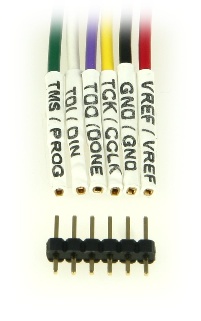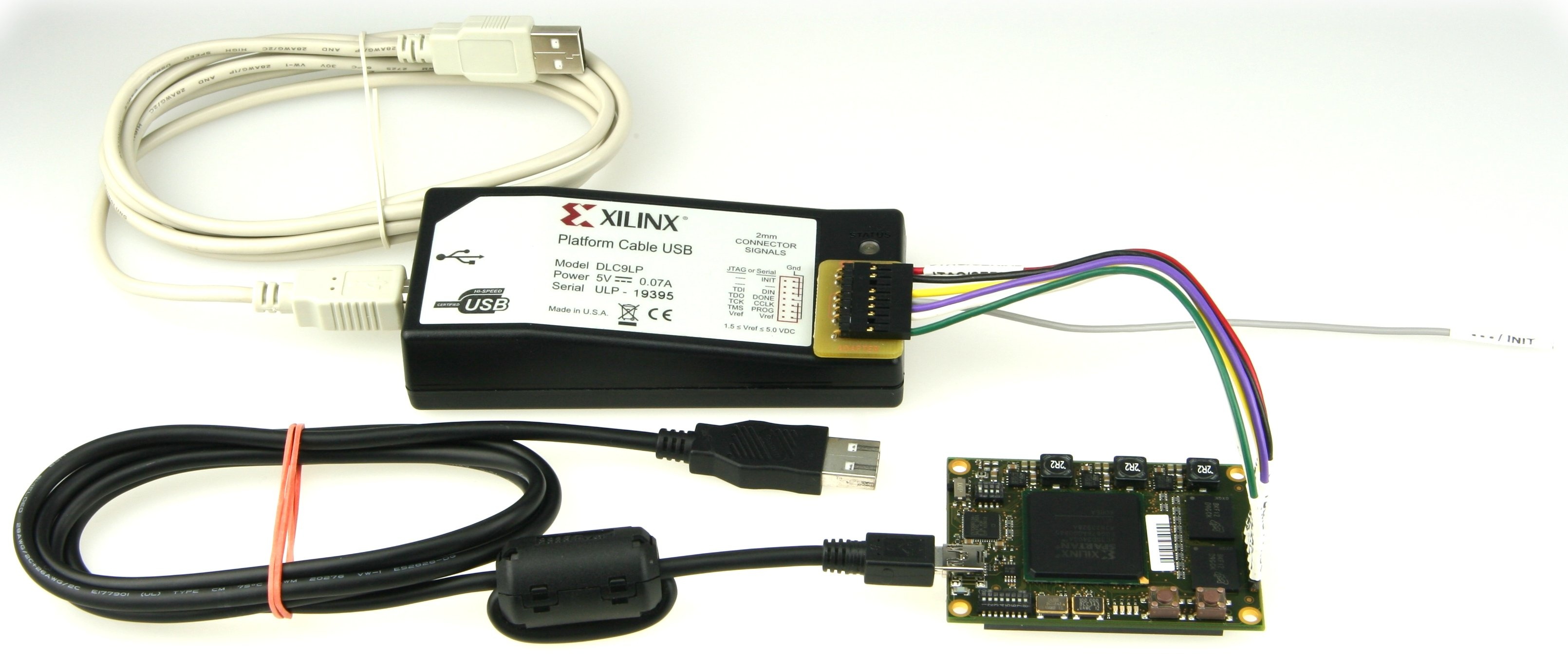JTAG signals are available at:
- available on the gender-inverted standard 6-pin JTAG header connector J2 as shown in the figure below.;
- available at B2B connector JM4. See Table 40 for additional information on these signals.
JTAG Connector J2
| Scroll pdf title |
|---|
|

|
VREF GND TCK TDO TDI TMS |
|
To connect your computer to JTAG connector J2, you typically need
- a JTAG cable with standard 6-pin JTAG female header;
- a 2.54 mm pitch 1 × 6 pin gender changer header.
Some examples of JTAG cable set are listed in the table below.
| Scroll pdf title |
|---|
| title | Some examples of JTAG cable set. |
|---|
|
JTAG cable | flying leads | software | gender changer |
|---|
Xilinx Platform Cable USB | included | Xilinx iMPACT | 1 × 6 pin | Digilent XUP USB-JTAG Programming Cable | XUP Fly Wire Assembly | Xilinx iMPACT | 1 × 6 pin | Digilent JTAG-USB Full Speed Module | includednot needed | Xilinx iMPACT
Digilent Adept 2.0 | 1 × 6 pin | | JTAG HS1 Programming Cable | not needed | Xilinx iMPACT
Digilent Adept 2.0 | not needed | | JTAG HS1 Programming Cable | not needed | Xilinx iMPACT
Digilent Adept 2.0 | not needed |
|
Figure A below shows a standard 6-pin JTAG female header, in this case flying leads, with a gender changer header.
Figure B below shows how a JTAG cable, in this case a Xilinx Platform Cable USB with flying leads and gender changer, is connected to a TE0320.
| Scroll pdf title |
|---|
|
 Image Modified Image Modified
|
|
...
 Image Added Image Added
| Figure A: standard 6-pin JTAG female header with gender changer. | Figure B: sample JTAG cable connection (TE0320 side). |
|
...
The figure below shows a recommended set-up for TE0320 configuration and operation. The USB cable provides for power supply and data communication channel. The JTAG is ideal for quick configuration and effective debugging.
| Scroll pdf title |
|---|
| title | Recommended TE0320 development set-up for TE0320. |
|---|
|
 |
JTAG lines at B2B connector JM4
JTAG signal lines are also available at B2B connector JM4 (pins 74, 76, 78 and 80). See the corresponding pin-out table for additional information on these signals.


